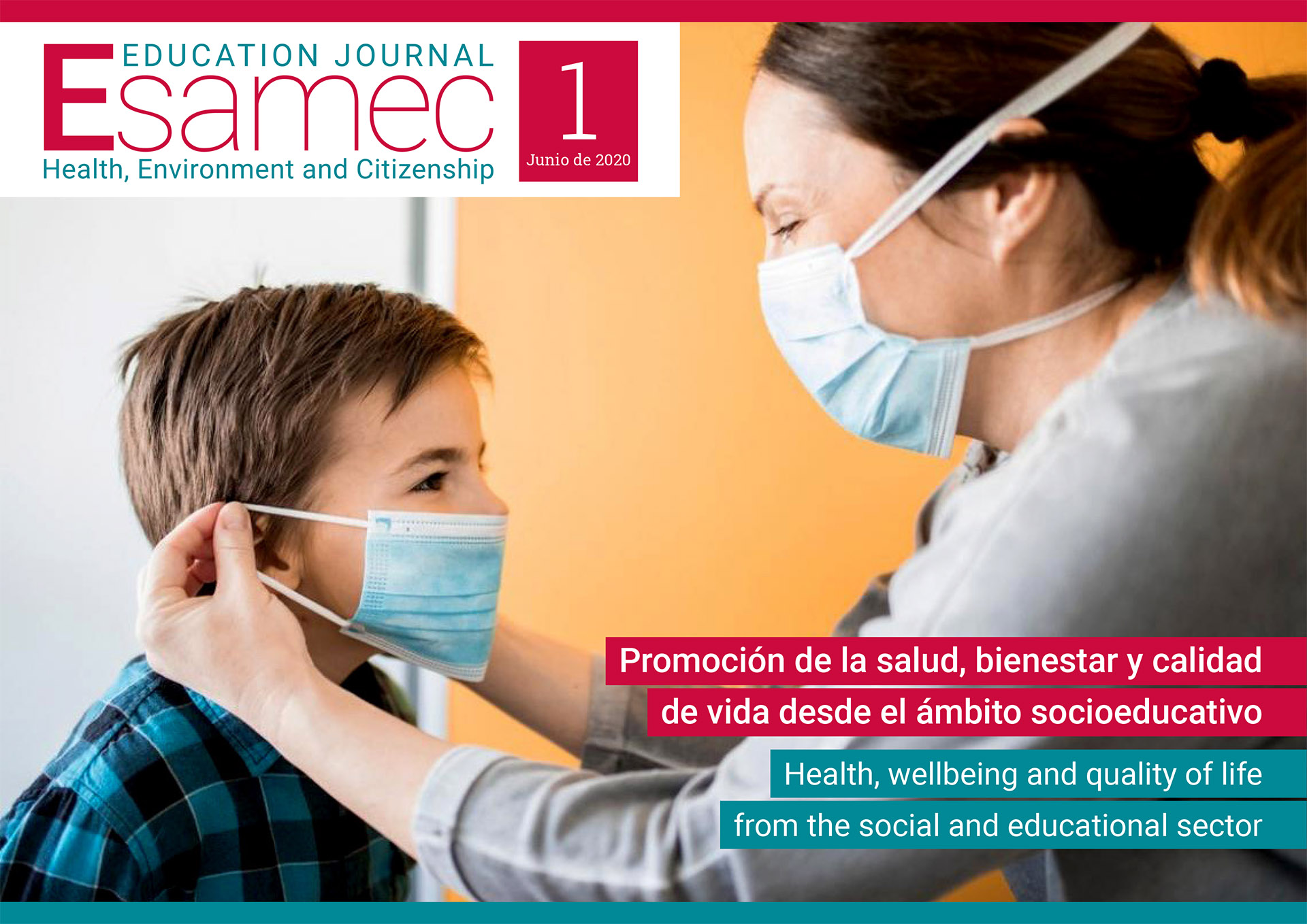Revisión Bibliográfica: El ASMR como posible estrategia para el bienestar emocional
Resumen
En la actualidad muchas personas encuentran en internet un aliado esencial al cual recurren en búsqueda de soluciones que mejoren su malestar psicológico. Debido a ello en los últimos años ha surgido una experiencia usada cada vez por más personas para intentar disminuir los sentimientos emocionales negativos derivados del estrés o la ansiedad. Se trata del ASMR, un fenómeno en el que a través de diferentes sonidos, se experimenta sensación de calma gracias a un “hormigueo” agradable que comienza en la coronilla y se extiende por todo el cuerpo. El objetivo principal de este trabajo es saber los beneficios que el ASMR puede aportar a personas con trastornos psicológico. Los estudios consultados muestran que la visualización de vídeos con contenido de ASMR producen un efecto relajante y calmante. Además, se estableció que existe una respuesta fisiológica que demuestra que el ASMR es una experiencia emocional compleja que ayuda a la relajación. Así, el ASMR podría resultar efectivo para aliviar una variedad de problemas de salud mental. Como conclusión podemos establecer que el ASMR es eficaz en la relajación y la tranquilidad y presenta una base fisiológica demostrable, lo cual proporciona cierta credibilidad a dicha experiencia.
Descargas
Citas
Philips, S., Carlaw, K., Tok Fu Ng, D. y Kim D. (2019). Does triggering an Autonomic Sensory Meridian Response reduce pre-operative anxiety?. Anahestesia and Intensive Care, 47(IS), 1-29
Del Campo, M.A. y Kehle T.J. (2016). Autonomous sensory meridian response (ASMR) and frisson: Mindfully induced sensory phenomena that promote happiness. International Journal of School & Educational Psychology, 4(2), 99-105
Fuente, A., Herrero, J. y García, H. (2010). Internet y apoyo social: sociabilidad online y ajuste psicosocial en la sociedad de la información. Acción Psicológica, 7(1), 9-15
Klaussen, H.B. (2019). Safe and sound. What technologically-mediated ASMR is capable of through sound. Sound Effects, 8(1), 87-103
Ahuja, A. y Ahuja, N.K. (2019). Clinical Role-Play in Autonomous Sensory Meridian Response (ASMR) Videos. Performance and Placebo in the Digital Era. JAMMA, 321(14), 1336-1337
Lee, M., Song, C., Shin, G. y Lee, S. Possible Effect of Binaural Beat Combined With Autonomous Sensory Meridiam Response for Inducing Sleep. Frontiers in Human Neuroscience, 13(425)
Cash, D.K., Heisick, L.L. y Papesh, M.H. (2017). Expectancy Effects in the Autonomous Sensory Meridian Response. PeerJ,
Poerio, L.G., Blakey, E., Hostler, T.J. y Veltri, T. (2018). More tan a feeling: Autonomous sensory meridian response (ASMR) is characterizer by reliable changes in affect and psychology. Plos One, 13(6),
Valtakari, N.V., Hooge, I.T.C., Benjamins, J.S. y Keizer, A. (2019). Ane ye-tracking approach to Autonomous Sensory Meridian Response (ASMR): The physiology and nature of tingle in relation to the pupil. Plos One, 14(12),
Barrat, E.L. y Davis, N.J. (2015). Autonomous Sensory Meridian Response (ASMR): a flow-like mental state. PeerJ
Barrat, E.L., Spence, C. y Davis, N.J. (2017). Sensory determinants of the autonomous sensory meridiane response (ASMR): understanding the triggers. PeerJ
Fredborg, B.K., Clark, J.M. y Smith, S.D. (2018). Mindfulness and autonomous sensory meridian response (ASMR). PeerJ
Publicado
Cómo citar
Número
Sección
Licencia
Derechos de autor 2020 La Universidad de Sevilla se reserva todos los derechos sobre el contenido de las revistas científicas editadas por ésta. Los respectivos textos no pueden ser utilizados, distribuirse, comercializarse, reproducirse o transmitirse por ningún procedimiento informático, electrónico o mecánico con ánimo de lucro, directo o indirecto, ni tampoco incluirse en repositorios ajenos, sin permiso escrito de la Editorial Universidad de Sevilla. Podrán ser usados y citados para fines científicos y referenciados sin transformación para usos académicos, indicándose en todo caso la autoría y fuente, pudiendo para ello remitir al correspondiente enlace URL de Internet.

Esta obra está bajo una licencia internacional Creative Commons Atribución-NoComercial-SinDerivadas 4.0.
En caso de su aceptación, autorizo a la revista ESAMEC a incluir mi nombre y apellidos, ORCID, así como mi filiación institucional y, en su caso, mi dirección de correo electrónico, en todos los documentos relacionados con la publicación del artículo que se somete a evaluación. Asimismo garantizo la autoría y originalidad del artículo, y asumo la plena y exclusiva responsabilidad por los daños y perjuicios que pudieran producirse como consecuencia de reclamaciones de terceros respecto del contenido, autoría o titularidad del contenido del mismo.
Todos los contenidos de esta revista se distribuyen bajo una licencia de uso y distribución “Creative Commons Atribución-NoComercial-CompartirIgual 4.0 Internacional”. Puede consultar desde aquí la versión informativa y el texto legal de la licencia. Esta circunstancia ha de hacerse constar expresamente de esta forma cuando sea necesario.





